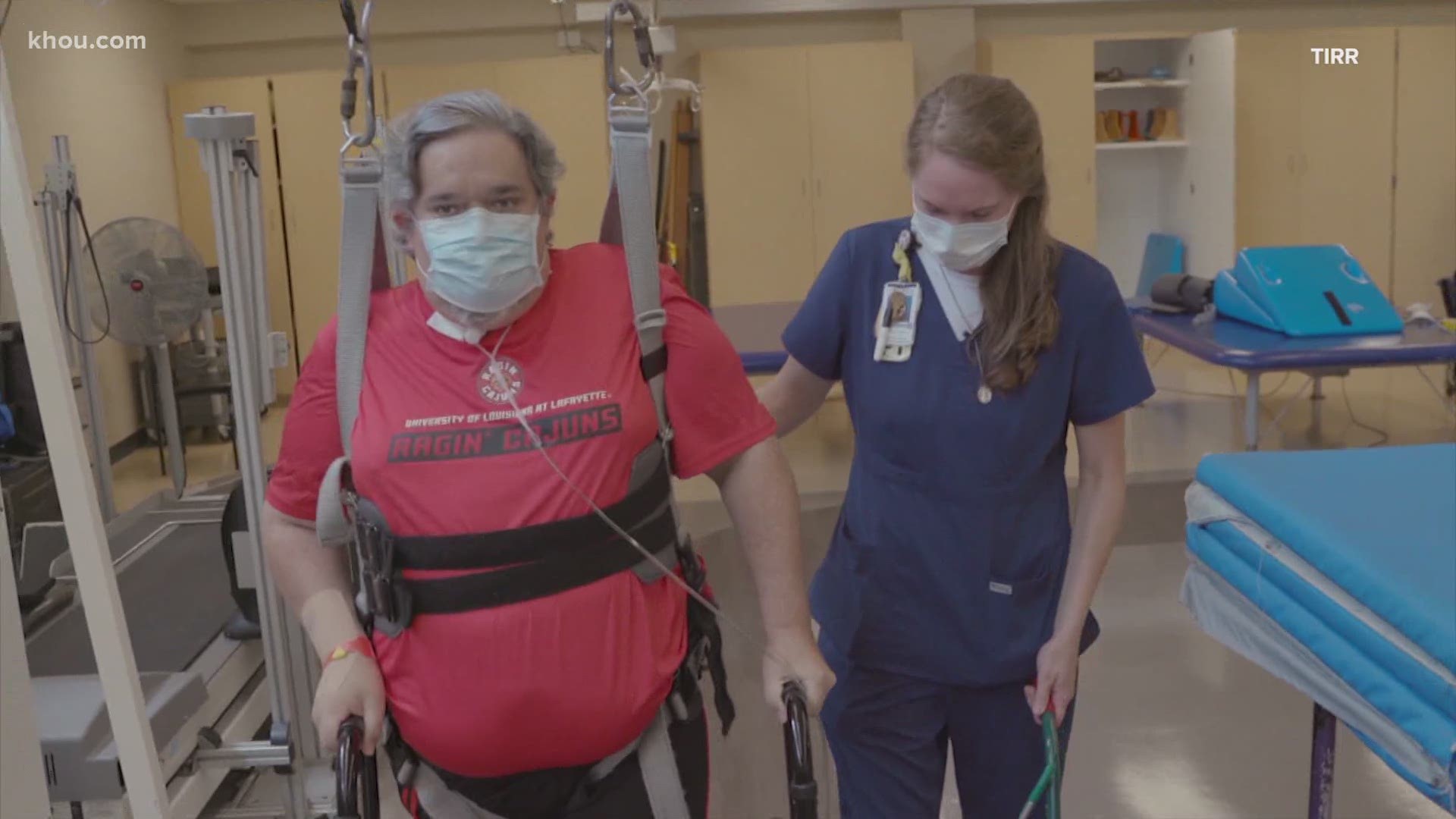People from all over the country are coming to Houston for rehab after fighting coronavirus. It’s part of a new program at TIRR Memorial Hermann.
They’re helping treat patients who find themselves suffering from lasting effects of the virus, like Dr. Joseph Lashley.
As an ER doctor in Louisiana, Dr. Lashley knows exactly how he got coronavirus.
“I had intubated several people with COVID, and I pronounced somebody who died of COVID," Dr. Lashley said.
But Dr. Lashley’s recovery hasn’t been easy. He was hospitalized, spending 39 days in the ICU, where he also had a stroke.
“I don’t remember any of that 39 days," Dr. Lashley said.
Once recovered, Dr. Lashley had to relearn some of life’s basics.
“I couldn’t sit up by myself. I couldn’t stand up by myself. I couldn’t go to the bathroom by myself. I couldn’t roll over very well at all," Dr. Lashley said.
And he did so at TIRR Memorial Hermann in Houston.
And while Dr. Lashley’s infection was severe, even those with mild symptoms may still need rehab.
“There are also people who have reported cognitive changes, memory problems, decision making problems, personality changes," Chief Medical Officer at TIRR Memorial Hermann Dr. Gerard Francisco said.
Dr. Francisco says some long term effects can be mild, like fatigue, weakness and clumsiness, but others, like Dr. Lashley’s, can be life altering.
“So it seems like the virus itself, or the body’s response to the virus is causing havoc to their system, and many patients end up with these complications," Dr. Francisco said.
So to help regain that loss, TIRR has developed this rehab program specific to COVID survivors.
“We felt that we are in a position to help people recover from COVID," Dr. Francisco said.
They're tailoring each treatment to each patient and whatever lasting effects they endure. Dr. Francisco says even if you weren’t hospitalized, that doesn’t mean you don’t need help.
“The best thing to do is to be evaluated. And then we will be happy to discuss the options that we have in order to function as well as they did before they got COVID," Dr. Francisco said.
As for Dr. Lashley, he’s now back home, getting his life back as quickly as he can.
“In not too long, they’ll probably get rid of the walker, and switch to just a cane. And then the goal would be to get rid of the cane altogether," Dr. Lashley said.

